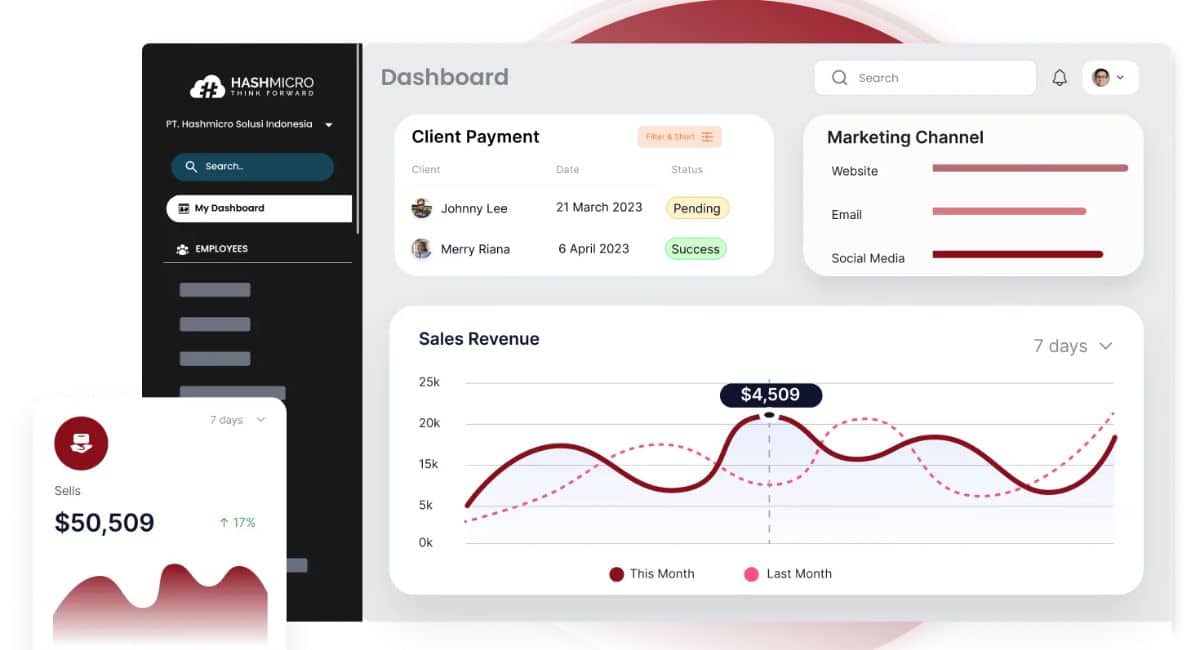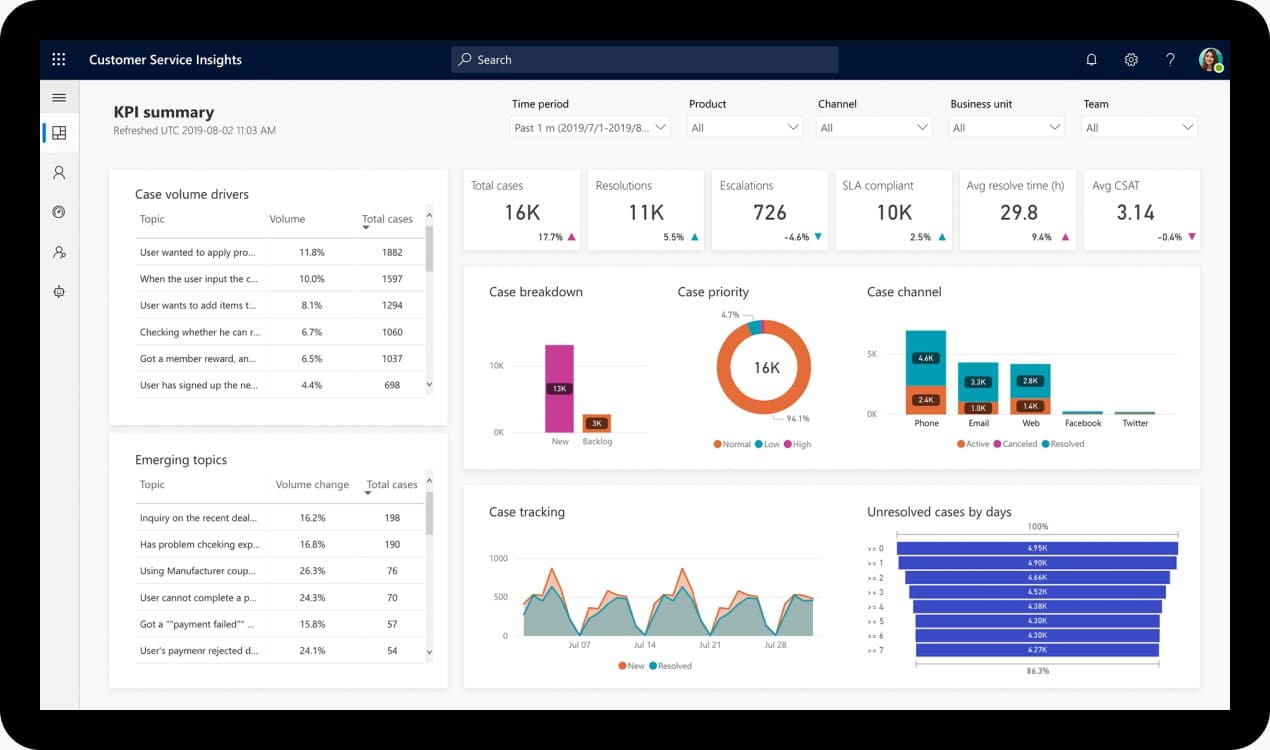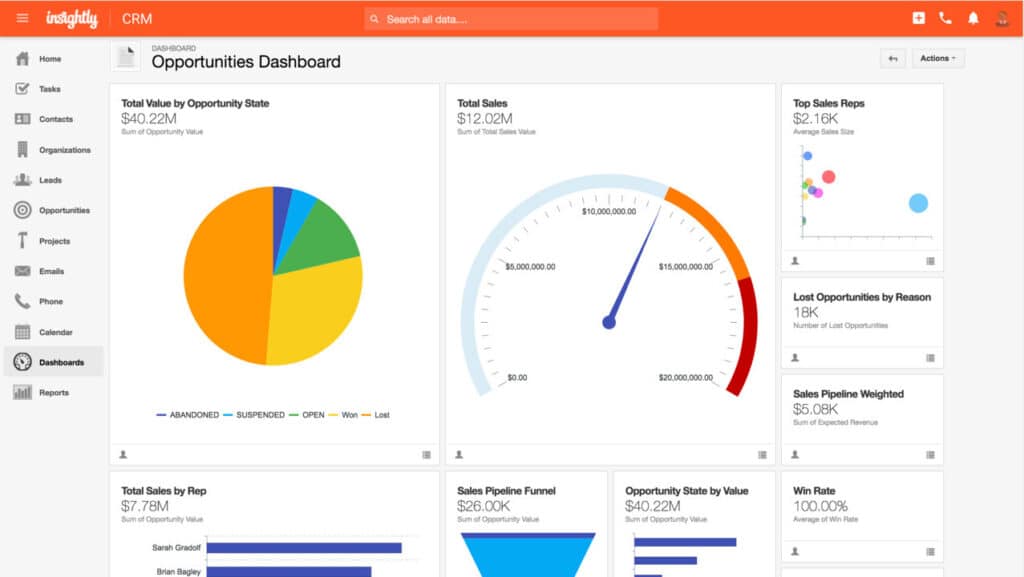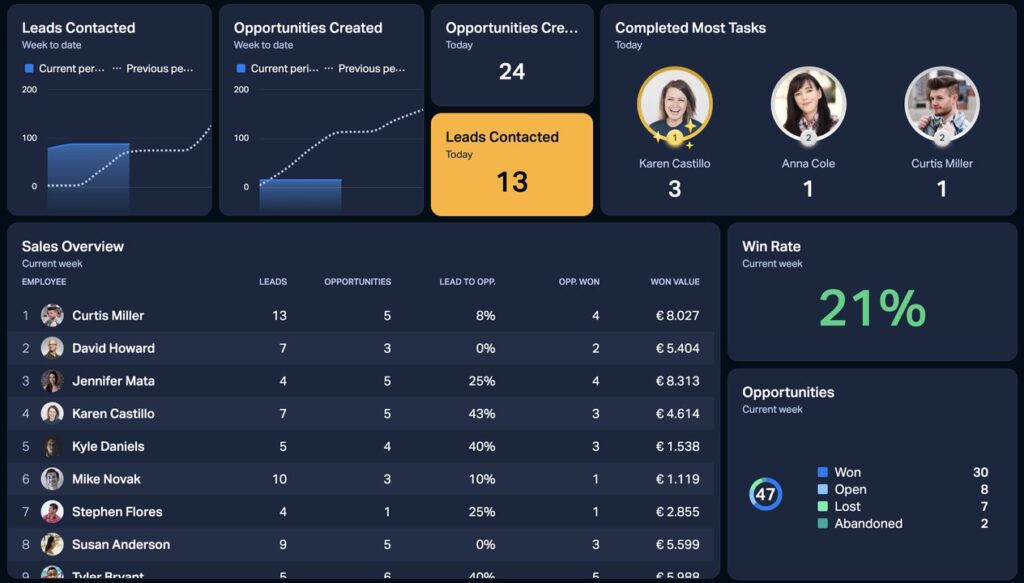Did you know that, according to McKinsey & Co., advanced CRM software with generative AI can boost revenue potential by up to 15% and save time by up to 40%? These solutions have proven to significantly enhance customer relationship management globally.
Adopting advanced CRM software is essential for Southeast Asian businesses to stay competitive. With numerous options available, choosing the right software can be challenging. However, we’re here to help.
We’ve compiled a list of the best CRM software for Singaporean businesses, including HashMicro, Salesforce, Zoho, and Oracle. These solutions streamline customer management processes, improve efficiency, and drive success.
Let’s explore the top CRM software for 2024 and identify the ideal solution for your business.
Key Takeaways |

Table of Content:
Table of Content
1. HashMicro CRM Software
HashMicro is web-based CRM software for all types of businesses in Singapore, including retail, manufacturing, and service industries. It enhances customer relationship management by streamlining sales processes and providing comprehensive business performance tools.
The best overall option for Singapore companies seeking a complete, scalable CRM solution tailored to their needs.
Why we picked it: HashMicro stands out with features like Sales Pipeline Management, which visualizes sales stages; Revenue Forecasting, which predicts future income; and Sales Report Generation, which generates detailed insights. These make it ideal for diverse business requirements.
This company also offers a no-commitment free demo for those interested in trying the software themselves.
Moreover, HashMicro has helped major enterprises in Singapore and Southeast Asia improve customer relationship management with comprehensive features and excellent customer support. It provides outstanding service across all business sectors.
With HashMicro CRM software, you can manage your sales pipeline, forecast revenue, generate sales reports, and automate various business processes—all in one place. Its flexible modules and robust system architecture ensure seamless integration with your existing operations.
| Advantages | Disadvantages |
| ✓ Comprehensive
✓ Flexibility ✓ Mobile accessibility ✓ Integration options ✓ Unlimited users ✓ Fixed pricing |
× Not SME-friendly, due to their less complex needs |
HashMicro suits varied industries, making business processes leaner, client relations stronger, and industries more triumphant. Explore HashMicro’s pricing below:
2. Microsoft Dynamics
Microsoft Dynamics, a Windows-based customer relationship management software, shines in project management and is a favorite for sectors needing customer, accounting, and project finesse like governments or professional services.
Its toolkit covers document automation, sales assignments, personalized customer interactions, automated productivity, and slick service tracking.
This system adapts to multiple industries, leveraging its functionalities to match business needs.
| Advantages | Disadvantages |
| ✓ Flexible customization
✓ Syncs with Microsoft products ✓ Strong mobile capability ✓ Potent analytics |
× High initial implementation price
× Complex UI with excessive changes × Requires strong IT resources × Not small businesses-friendly × Challenging for activities other than project management |
Microsoft Dynamics CRM is a flexible platform that is adaptable to various industries. The success of using this CRM depends on how companies can adapt their features and functions to suit their business needs.
3. SAP CRM Application
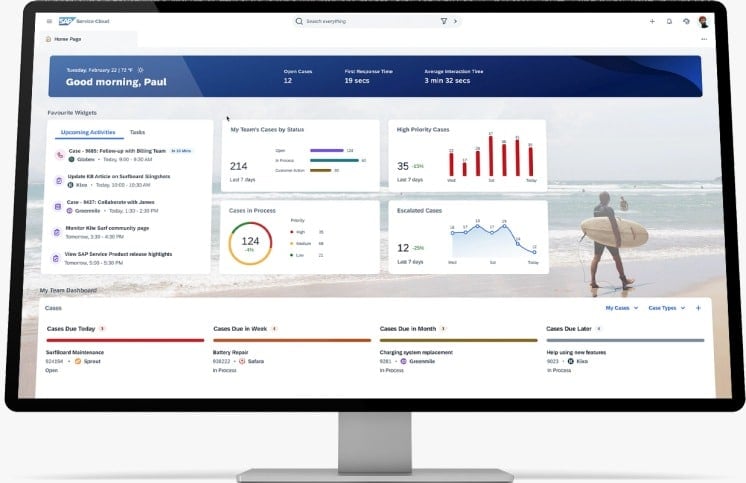
While it clicks with other apps, it stumbles on user-friendliness and costs, demanding capable IT teams and higher cost.
| Advantages | Disadvantages |
| ✓ Syncs with other SAP solutions
✓ Deep analytics ✓ Customer interaction tracking capability ✓ Strong CRM |
× Not user-friendly
× Rigid setup × Pricey system × Steep learning × Long implementation time × Requires robust IT resources |
SAP CRM is usable across various industries that have a need to manage customer relationships and sales processes. The success of implementing SAP customer management software depends on a company’s ability to adapt CRM features and functions according to their business demands.
4. Insightly CRM System
Insightly could be an excellent CRM choice if you have a Google-savvy team. It integrates seamlessly with your existing Google Apps, allowing your team to work within a familiar environment and reduce the learning curve. However, if your team works across different time zones, the lack of 24/7 support might be a drawback.
| Advantages | Disadvantages |
| ✓ User-Friendly Interface
✓ Integration Capabilities ✓ Robust project management tools |
× Limited Advanced Features
× Performance Issues × Customization Limitations |
Insightly caters to the needs of medium-sized firms in e-commerce, manufacturing, retail, or finance, diving deep into customer interaction.
5. Salesforce CRM Software
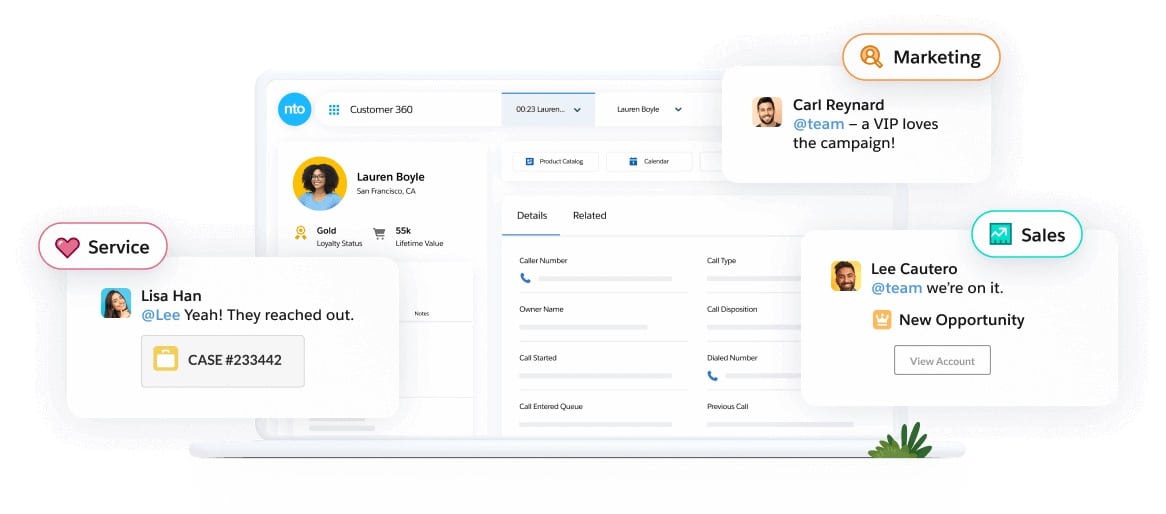
However, there are some drawbacks to consider. The cost can be high, especially for small businesses, and the platform has a steep learning curve for inexperienced users. Additionally, fully leveraging Salesforce requires intensive training and meticulous implementation planning.
| Advantages | Disadvantages |
| ✓ Syncs other systems
✓ Powerful data analytics |
× Expensive
× Not user-friendly |
Salesforce’s system is suitable for industries such as healthcare, manufacturing, and finance.
Also read: 5 Benefits of CRM Systems for Hotels That You Must Know
6. Copper
Similar to Insightly, Copper is designed with Google users in mind. Its strong integration with G-Suite makes it a popular choice. While its features may not be groundbreaking, users frequently praise Copper’s user-friendly experience. Copper is also recognized as one of the top CRM solutions in Singapore for businesses looking to streamline their operations with seamless Google integration.
| Advantages | Disadvantages |
| ✓ Integration with Google Workspace
✓ Strong automation capabilities ✓ User-friendly interface |
× Limited Customization
× Too many complex features |
Copper CRM offers intelligent solutions usable by Singaporean SMEs and small companies in various industries, such as retail, hospitality services, manufacturing, the healthcare industry, and more.
7. Zoho
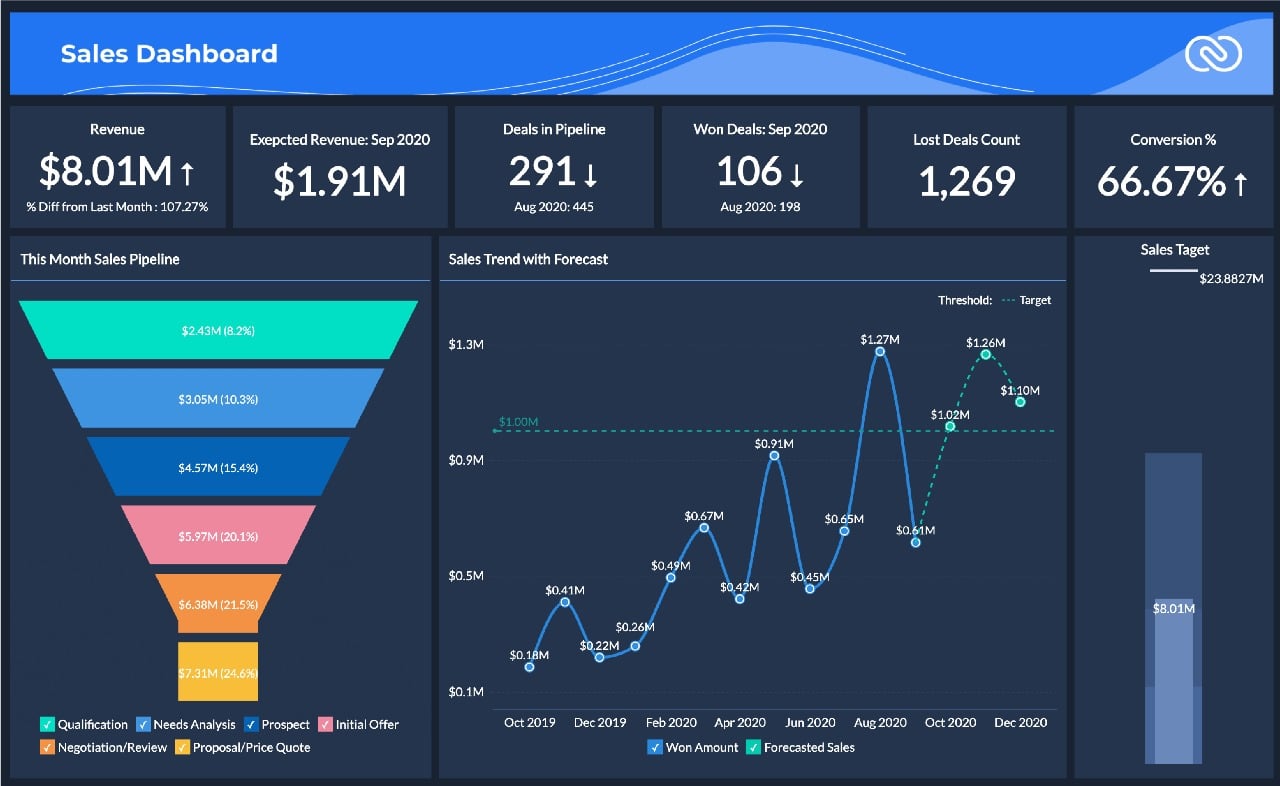
However, businesses should note that this system comes with a subscription cost that might increase due to additional features. In addition, because of its complexity, extra training costs might be incurred.
| Advantages | Disadvantages |
| ✓ Many features | × Pricey
× Requires extensive training to navigate the complex system |
Zoho CRM system can be utilized across industries like retail, banking and finance, and manufacturing.
8. Pipedrive CRM Software
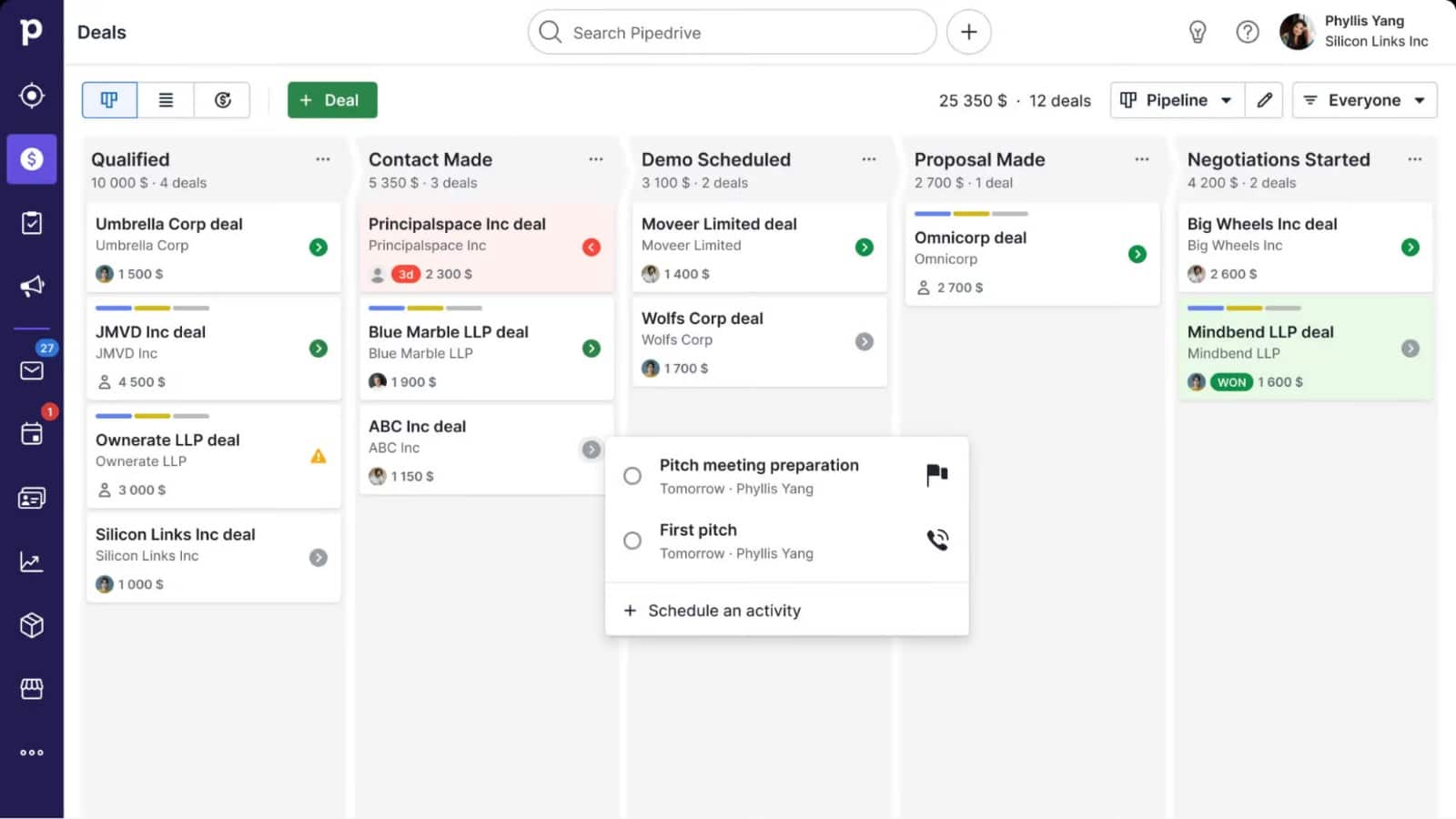
However, this system lacks depth in customer interaction tracking or inventory management. Moreover, the per-user subscription cost can be high for growing businesses requiring increased user access to the platform.
Furthermore, syncing with third-party applications might require additional technical skills.
| Advantages | Disadvantages |
| ✓ User-friendly reporting features
✓ Enhanced data analytics |
× Features are generic and less comprehensive
× More expensive cost for additional features |
This CRM system can be used across industries such as sales, marketing, services sectors, and manufacturing.
9. HubSpot
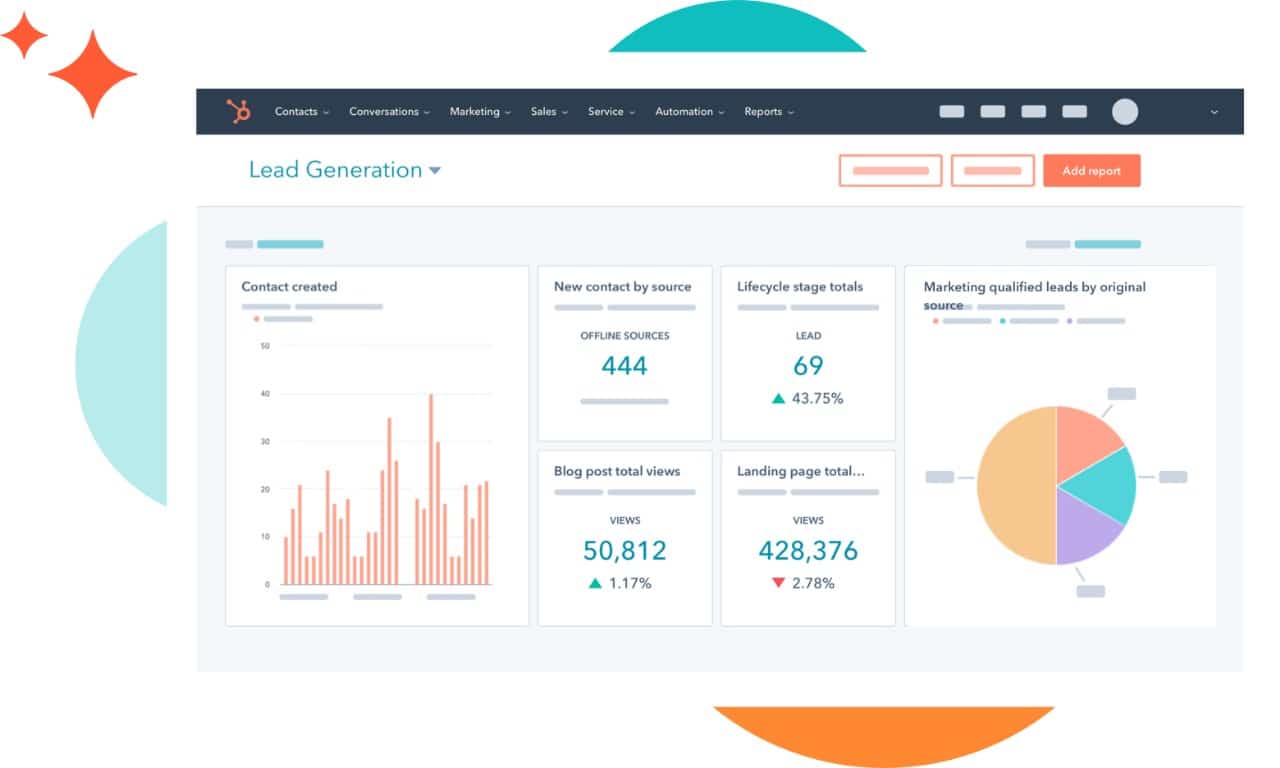
However, this ease of use comes at a high cost, especially for small and medium-sized businesses. Additionally, the features in HubSpot’s system are still quite generic, requiring extra costs for advanced features. It’s important to note that this system might not be suitable if you want to track and view your sales activities.
| Advantages | Disadvantages |
| ✓ Friendly UI
✓ Automatic email tracking ✓ Customer activities tracking capability |
× Features are generic and not that complex
× Additional prices for extra features |
This system can be used across industries like finance, manufacturing, e-commerce, and more.
10. Freshsales CRM Application
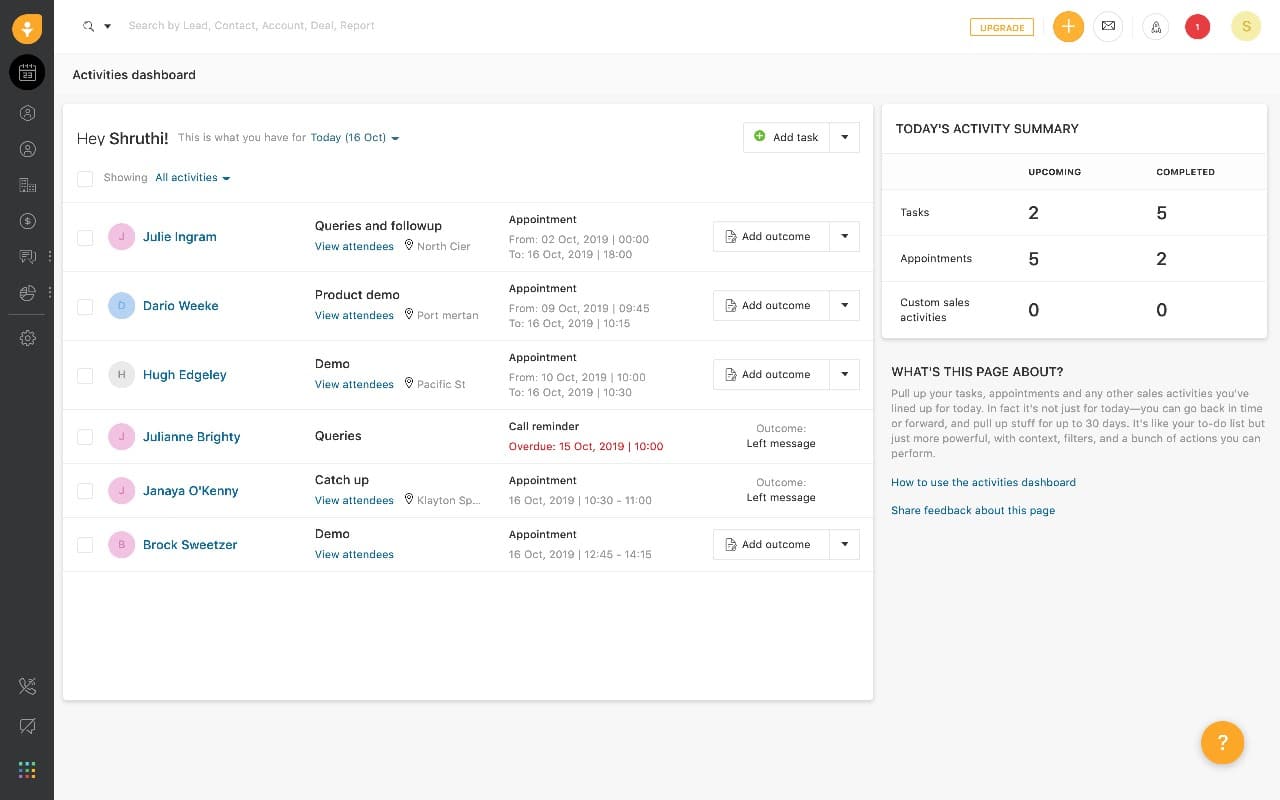
However, it lacks seamless integration with other systems, potentially leading to difficulties in transferring data between platforms. Additionally, the high cost of the system can pose challenges for small companies. Customers needing additional features may be charged with extra costs.
| Advantages | Disadvantages |
| ✓ User-friendly interface
✓ Sales automation ✓ Strong data insights |
× Features are generic and not comprehensive
× Limited system integration × Extra costs for extra features |
This system can be used across industries like e-commerce, finance, manufacturing, and retail.
11. Oracle Siebel
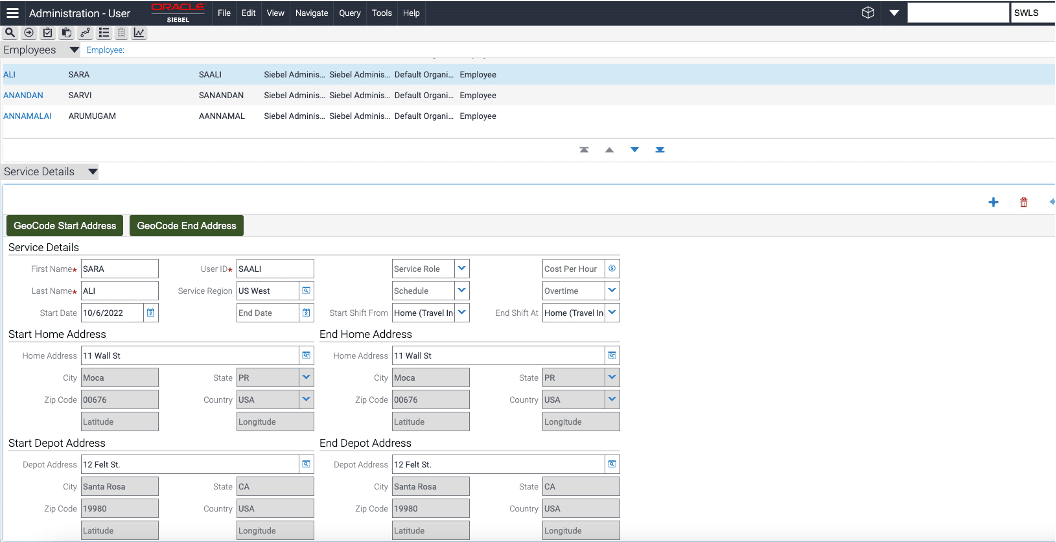
Your sales team can easily track appointments and daily tasks, fostering strong relationships with partners, resellers, agents, and brokers. Moreover, your company supervisors can smoothly plan, execute, and manage marketing programs across various channels.
This CRM solution from Oracle Siebel can help keep your business competitive. With features supporting analysis and transactions, you can manage every aspect of customer service more efficiently.
| Advantages | Disadvantages |
| ✓ Ease managing business sales and marketing
✓ Enables planning, executing, and managing marketing programs across multiple channels ✓ Strong analytics |
× Steep learning
× Not SMB-friendly × Complex and outdated UI |
Oracle Siebel software works for various sectors such as finance, utilities, manufacturing, and transportation.
12. Keap
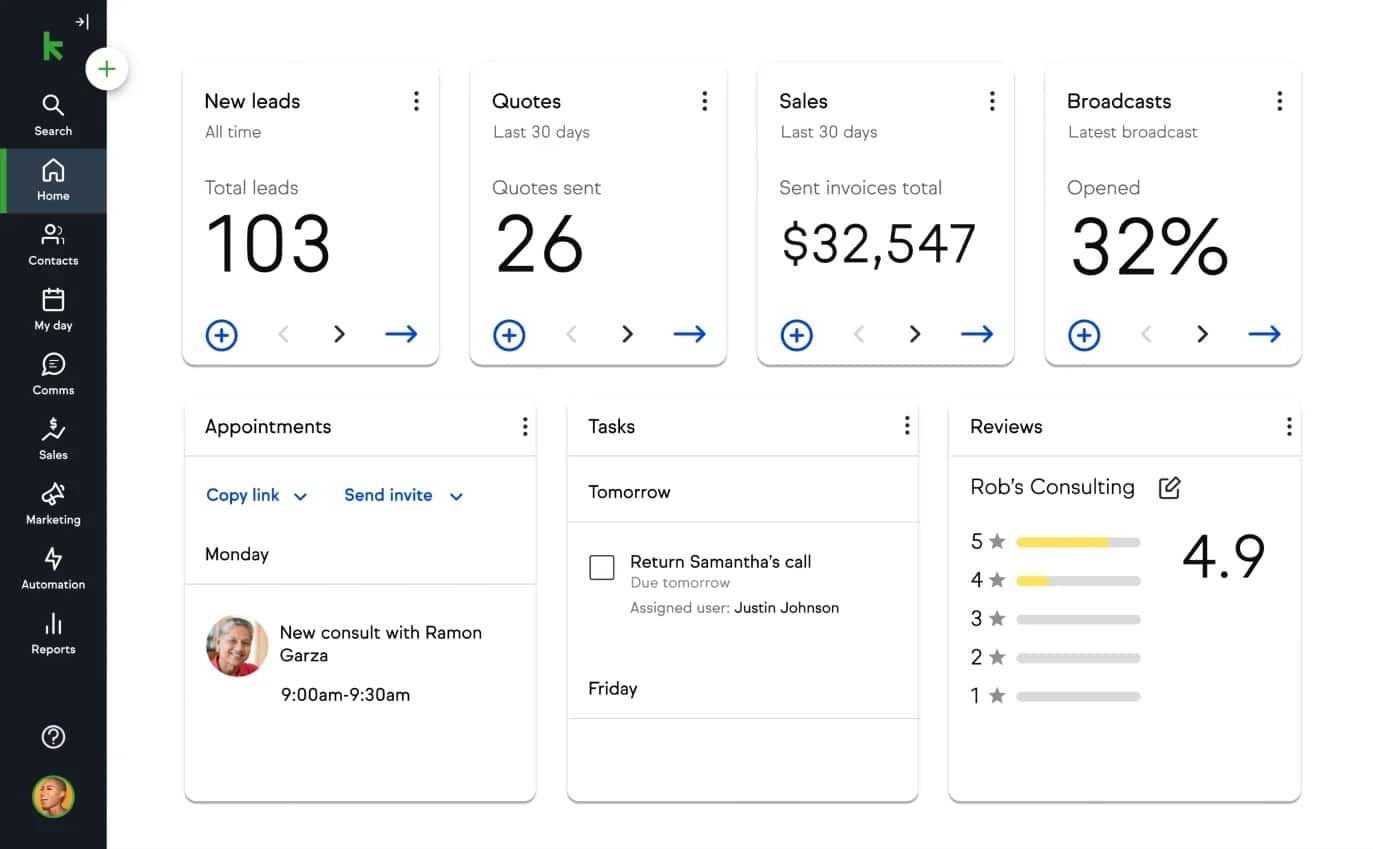
Additionally, Keap CRM can seamlessly move potential consumers through various steps in the business process, visible in its sales pipeline dashboard.
| Advantages | Disadvantages |
| ✓ Marketing automation
✓ Efficient lead management ✓ Personalized content ✓ Good reporting features ✓ Syncs with other applications |
× Relatively expensive for SMBs
× Limited scalability × Requires training × Limited customer support |
Keap aids in managing prospects, communications, and various business tasks. Therefore, Keap CRM can be used across most industries.
13. Sugar CRM
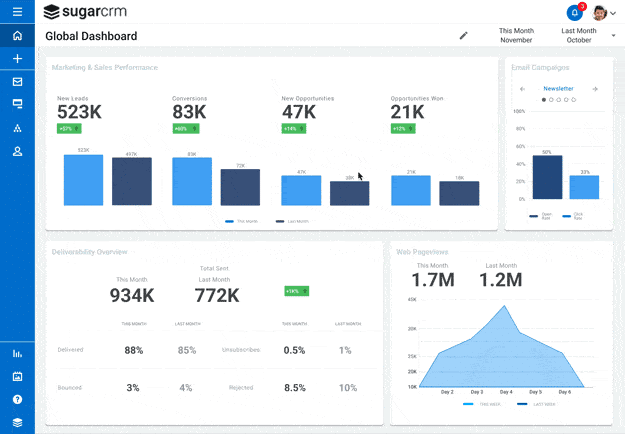
Although, some functions still require improvement, and integration with other channels is considered complex. This application is more focused on customer service. Even so, Sugar CRM has become the choice of companies from various CRM systems to enhance their business performance due to the flexibility and support they offer.
| Advantages | Disadvantages |
| ✓ Customizable UI
✓ Provides training and customer support |
× Complex integration with other channels
× Less suitable for other needs than customer service |
Sugar CRM can be implemented in companies across various industries such as manufacturing, insurance, telecommunications, and more.
14. EngageBay
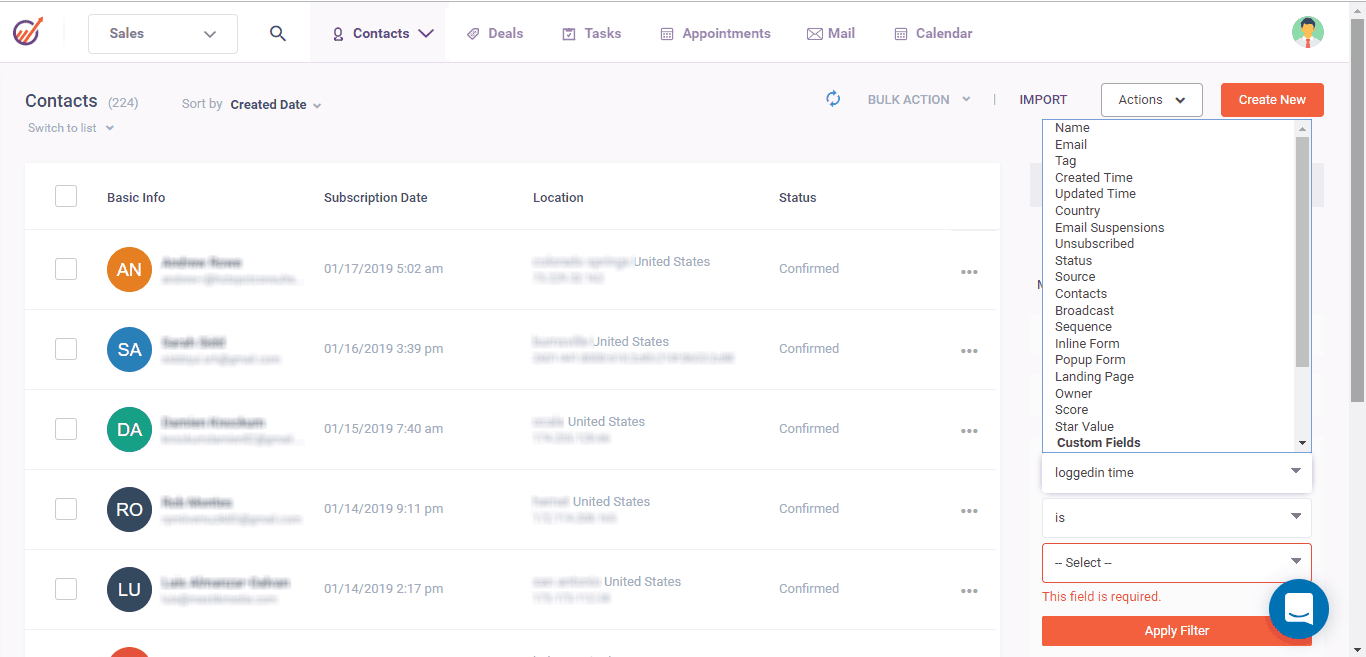
The software has essential features such as tracking business activities, monitoring ROI, scheduling responses, and automatic assignments. However, it lacks additional features like Google Meet and event calendars. Additionally, its customer support services are limited to technical issues. The EngageBay CRM system is focused on customer service.
| Advantages | Disadvantages |
| ✓ Flexible cloud-based system
✓ Customer activities tracker |
× Lacks additional features
× Limited customer support |
Given the flexibility of the EngageBay CRM system, it suits small to medium-sized businesses of various company sizes.
15. Apptivo
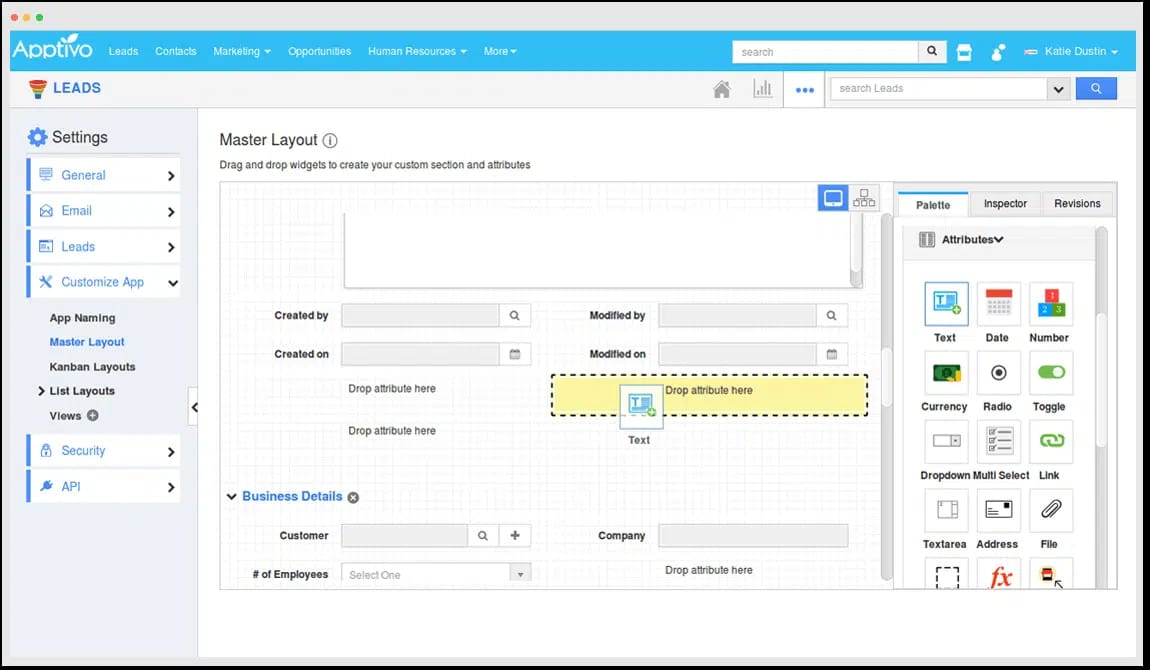
Apptivo CRM manages business tasks such as invoicing and customer support. Its features include individual use, lead collection, business opportunity identification, sales process tracking, and simple repetitive task automation. Unfortunately, Apptivo has inadequate customer support and limitations in customizing features.
| Advantages | Disadvantages |
| ✓ Integration with Google and email applications
✓ Manages various business tasks |
× Inadequate customer support
× Limitations in features customization according to business needs |
The Apptivo CRM application can generally be used for businesses of various sizes like hospitality, retail, and real estate.
Also read: How to Choose the Best CRM System to Grow Your Business




